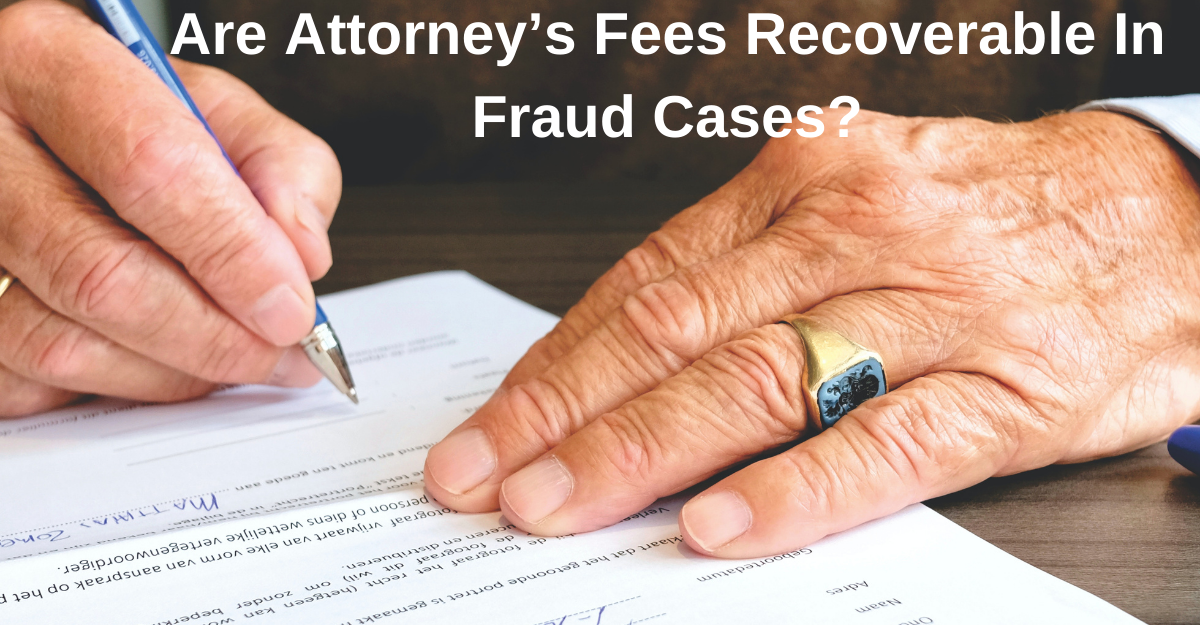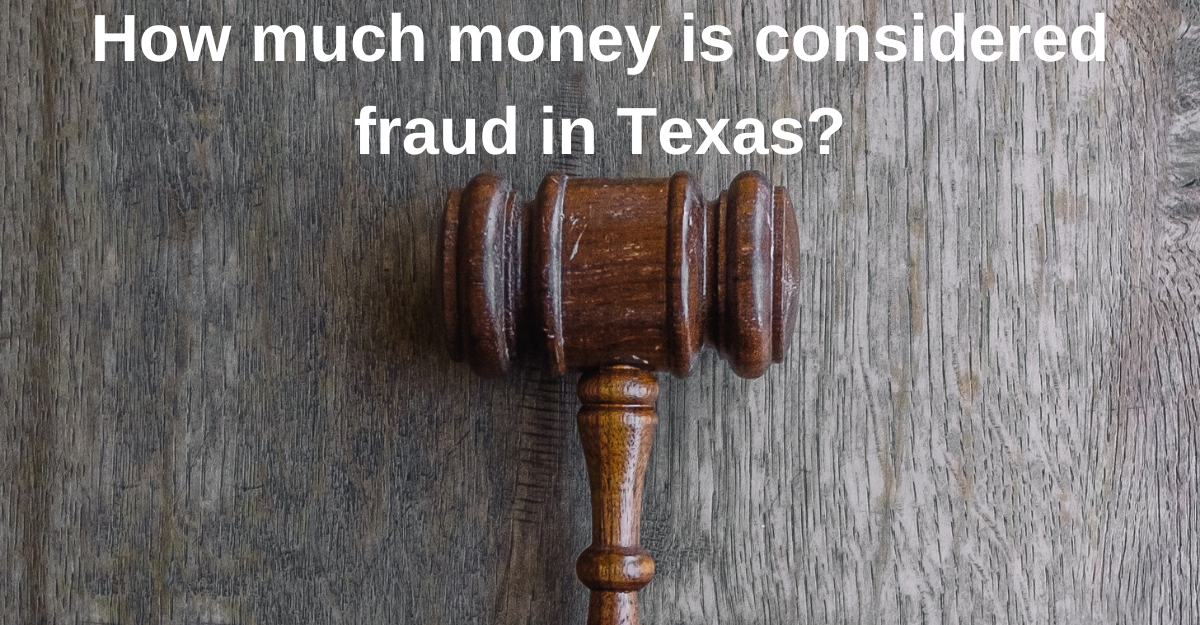
Are Attorney’s Fees Recoverable In Fraud Cases?
Attorney’s fees may be recoverable in fraud cases, depending on the jurisdiction and specific circumstances of the case. In many legal systems, including the United States, parties who prevail in fraud cases can seek to recover their attorney’s fees as part of the damages or restitution awarded. The availability of attorney’s fees recovery varies and is subject to the applicable laws and rules governing the particular jurisdiction and type of case.
In the context of fraud cases, attorney’s fees may be awarded when there is a statutory provision or contractual agreement that allows for such recovery. For instance, certain consumer protection laws or securities regulations may provide for the recovery of attorney’s fees for victims of fraud. Contractual agreements, such as those found in business transactions or insurance policies, may contain provisions stipulating the recovery of attorney’s fees in the event of fraud.
Are attorneys fees recoverable for fraud in Texas?
In Texas, attorney’s fees can be recoverable in fraud cases under certain circumstances. The availability of attorney’s fees recovery in fraud cases is governed by the Texas Civil Practice and Remedies Code. According to Section 38.001, a prevailing party in a fraud case may be entitled to recover reasonable attorney’s fees if they can establish their right to such recovery under a statute or a valid written contract.
To be eligible for attorney’s fees recovery in a fraud case in Texas, it is important to identify any relevant statutes or contractual provisions that specifically authorize the recovery of attorney’s fees. For instance, the Texas Deceptive Trade Practices-Consumer Protection Act (DTPA) is one statutory provision that allows for the recovery of attorney’s fees in fraud cases involving consumer protection violations. Contractual agreements containing fee-shifting provisions can provide the basis for recovering attorney’s fees in fraud cases.
Can you get attorneys fees for fraud in California?
In California, it is possible to recover attorney’s fees in fraud cases under certain circumstances. The availability of attorney’s fees recovery in fraud cases is governed by California law, specifically the California Civil Code. Pursuant to Section 1717 of the California Civil Code, prevailing parties in contractual disputes, including fraud cases, may be entitled to recover attorney’s fees if the underlying contract contains a provision allowing for such recovery.
To determine whether attorney’s fees are recoverable in a fraud case in California, it is essential to examine the language of the underlying contract. If the contract includes a provision that explicitly permits the recovery of attorney’s fees, then the prevailing party may seek reimbursement for the fees incurred in pursuing the fraud claim.
When can a defendant recover attorneys fees in Texas?
In Texas, a defendant can potentially recover attorney’s fees under specific circumstances. The availability of attorney’s fees recovery for defendants is governed by the Texas Civil Practice and Remedies Code. Under Section 38.001, a prevailing party, whether plaintiff or defendant, may be entitled to recover reasonable attorney’s fees if they can establish their right to such recovery under a statute or a valid written contract.
To recover attorney’s fees as a defendant in Texas, it is crucial to identify any applicable statutes or contractual provisions that authorize the recovery of fees. For instance, certain statutes, such as the Texas Deceptive Trade Practices-Consumer Protection Act (DTPA), provide for the recovery of attorney’s fees for defendants who successfully defend against consumer protection claims. Contractual agreements that include fee-shifting provisions can serve as the basis for recovering attorney’s fees as a defendant.
How much money is considered fraud in Texas?

How much money is considered fraud in Texas?
The amount of money considered to constitute fraud in Texas varies depending on the specific circumstances and the applicable laws. In Texas, fraud involves intentional deception or misrepresentation with the intent to induce another person to act to their detriment. The determination of whether an act constitutes fraud is not solely based on the monetary value involved but also considers the nature and elements of the fraudulent conduct.
The Texas Penal Code defines various fraud-related offenses, such as theft, forgery, and deceptive business practices, which encompass a wide range of fraudulent activities. These offenses can involve various monetary amounts, and the severity of the offense is often categorized based on the value of the property or funds involved.
FAQs
Who pays for the cost of fraud?
The cost of fraud is typically borne by the victims of the fraudulent activity. When fraud occurs, the victims often suffer financial losses or other negative consequences as a result of the deceitful actions of the perpetrator. They may incur expenses to rectify the situation, such as hiring attorneys, conducting investigations, or pursuing legal remedies. In many cases, the victims themselves are responsible for covering these costs.
İn certain circumstances, the government or law enforcement agencies may bear some of the costs associated with investigating and prosecuting fraud cases. These costs are funded through taxpayer dollars and allocated budgets for law enforcement and regulatory agencies. Government agencies play a vital role in identifying and combating fraud, and their efforts are aimed at protecting the public and deterring fraudulent activities.
What is the charge for fraud case?
The specific charges for a fraud case can vary depending on the jurisdiction and the nature of the fraudulent activity involved. Fraud charges typically encompass a range of offenses that involve intentional deception or misrepresentation for personal gain or to cause harm to others. The charges can be classified under different legal categories, such as theft, forgery, embezzlement, identity theft, securities fraud, insurance fraud, or wire fraud, among others.
The severity of the charges and the potential penalties associated with a fraud case depend on factors such as the monetary value involved, the extent of the deception, the number of victims, and any aggravating circumstances. Fraud charges can range from misdemeanor offenses with relatively minor penalties to felony charges carrying significant prison sentences and substantial fines.